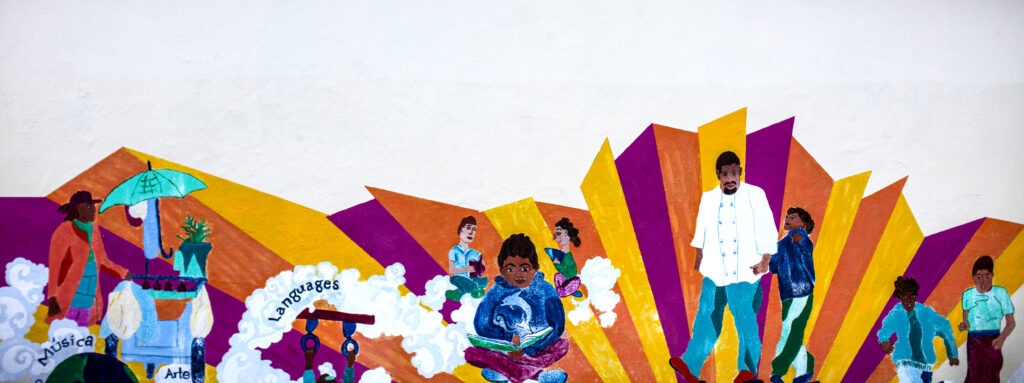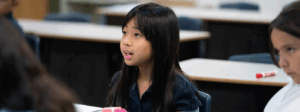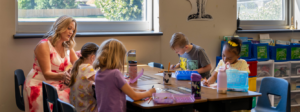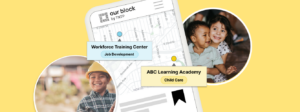Across the country, many school districts are reimagining how to partner with the families and communities they serve—and are finding new ways to help students thrive. For Dr. Eduardo “Ed” Hernandez, Superintendent at Edgewood ISD of San Antonio, this work is deeply personal. He grew up in Dallas as the son of an old Baptist preacher and deacon, with memories of doing a lot of work in neighborhoods. That love for working among the people never left him, and it’s apparent in how he leads today. Under his leadership, Edgewood has committed to three core values that drive their work: be professional, be accountable and communicate.
We’ve had the privilege of supporting Dr. Hernandez and his team over the last year. I recently sat down with him to reflect on the district’s efforts to authentically engage with families during the pandemic, his experience as a first-time superintendent, and how his deeply-rooted beliefs in building trust and social and emotional wellbeing inform his support of school leaders, teachers, students, and families.
(Interview has been edited and condensed for length and clarity.)
How has the pandemic impacted the priorities in your district, and what do you see as the most important work since last March?
The pandemic may have changed how we do things, but the priorities are still the same. Student learning is still the number one thing that drives our work. And equally important is the social and emotional wellbeing of our children. Those two things have kept me up at night since last March. It has been a challenge for us because we’re disconnected.
So, what we’ve had to do is just pivot how we do that. One of our challenges has been the digital divide. It is very difficult to connect with our folks because less than 30% had internet connectivity before the pandemic. Now, the beauty of this is the power of ingenuity. Our folks have really stepped up, and now we’re building our own towers so we can connect people. And not just when it comes to internet. Our parent liaisons and police officers continue to get out in the neighborhoods despite the pandemic. They’re still doing those mental health checks, delivering food, making sure that kids have not completely disengaged from us, because we know that consequence will extend beyond their schooling years. It’s been such an inspiring thing to witness and be a part of.
One thing we’ve been so inspired by in our work with Edgewood is the district’s commitment to engaging families and the broader community. For example, we know that accurate and timely communication with families is one of the district’s guiding principles.
I think communication for me has always been a priority, because one of the things that I learned as a person who grew up challenged financially and emotionally is that if I’m already feeling destitute and left out, it can keep you in a mental state where it affects how you learn. It affects your possibilities for the future. It affects your personal perception of seeing yourself as the winner or moving beyond your circumstances. You can’t imagine that if you constantly feel left out. For me, communication is the way that we bridge that. I have a saying: “We communicate early, we communicate often.” It’s one of our three core values.
The how for me has always been social media platforms because you want to use the language that the students use and that the community and the greater world is using now. I also believe in old-school methods, like the pláticas that I do. I go out to people’s homes, because my request has always been to the community, put me under a tree, put me in your portico, put me in your backyard. If we engage and we bring some food and you bring some food, we can have a conversation.
What are some of the challenges that you’ve had in engaging families, and how have you overcome them?
The biggest challenge is that if the Edgewood school system was a person, this community has lost its trust in that person. There’ve been a lot of empty promises made by the school district, maybe even local officials, that have really created an environment of people who are just incredulous. They don’t believe. Coming here and speaking to a lot of folks, one of the determining consequences or outcomes of those meetings was, we’ve got to go out and engage people where they feel most comfortable, which is their homes.
Now, in our system, what we do is we ask you to come to our buildings. We ask you to come to our parent night or reading night or different things. Well, that’s not comfortable for folks, because they first don’t trust the educational system. I think the narrative in the last few years in the country has been rather challenging for folks who already are economically challenged. Then there are folks who would see the school system as an extension of some sort of policing agency, so they stay away from the schools. For me, it’s been, let’s get out into the community, let’s go and engage them.
At the end of the day, the humanity in this work is what’s the most important. This is hard work, and when you work in a district like Edgewood, which is the poorest district in Bexar County—what I tell people is embrace it, stop fighting it. Stop using all your energy to fight the notion that we’re poor. We are poor and there’s pride in it too. That’s what’s always been important to me. We’re not there yet, but we’re successful at engaging people and at least getting them to listen to us.
As you know, we’ve worked Edgewood to create a 360-degree style survey system that regularly asks students and parents about their experience in school. What do you hope the district will be able to accomplish with that information?
Well, the main thing that I hope we get out of that, is that it will improve teacher and principal quality. Those are the two strongest factors that have a direct effect on how our students can learn and be engaged. If you a high-performing teacher in every classroom, and you have a high-quality leader in the schools, then your children are going to, 9 times out of 10, get a high-quality education.
I read a lot on Brené Brown. I am a huge follower of her work personally, and I apply that professionally. If we have the courage to be vulnerable and admit that we don’t know, as a teacher and as a leader—have the courage to say, I hear you, I see you, I affirm you and that’s okay, because as a leader, I also don’t have all the answers—we can engage in authentic conversations both with adults and students.
Last year we started something with our school board—we took our three high school presidents and junior presidents with us to something called Lone Star Governance Training for the board. There, we learn how to govern the district based on nothing but student outcomes. Instead of things like, what color are you going to paint the wall or what flowers are you going to put in front of the school, we ask how do we engage students in that work and bring them along when we go to these trainings?
So I hope that this qualitative data that we’re gathering will inform our practices as both practitioners in the classroom and leaders in the schools. For those of us who are leaders, I hope we’re able to support that work and really give teachers the tools they need to continue to better themselves so that we have higher levels of student engagement.
Do you feel like you’ve learned anything from the ways you’ve had to adjust over the last year that might carry over to how you approach your work in the future?
The main thing I’m taking away from this pandemic and reminding people of is that at the end of the day, we’re human and that we’ve got to first address those social-emotional basic needs before we start talking. The things that we held to be absolute truths have gone out the window. What we have now is an opportunity to create something and engage people who, whether they want to admit it or not, are afraid. We may not know what the future looks like, but we can build that future together.








